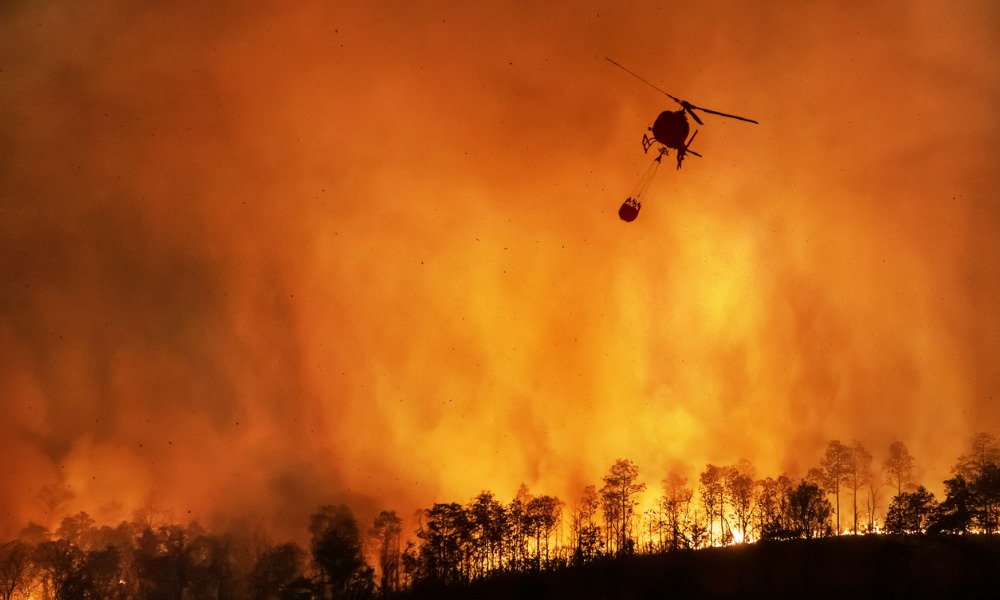
Lower compensation, benefits see many firefighters leaving province to work elsewhere

A union representing wildland firefighters in Alberta is sounding the alarm about the provincial government’s preparedness for another wildfire season that could be of the same level as last year.
“The 2023 wildfire season was the most destructive on record and still haunts many Albertans’ memories. With another drought and warmer temperatures on the way, the signs are pointing to this year being just as bad – or worse,” reads an open letter and a petition from the Alberta Union of Public Employees (AUPE).
“Alberta must be ready to respond to the same level of disaster, but the provincial government is disastrously unprepared. It doesn’t have a plan to cope with another bad fire season, it hasn’t put enough money in the budget to deal with what’s coming, and it doesn’t have the workers in place that it will need.”
Wildfires in Alberta in 2023 put the spotlight on crisis management, according to a previous report.
Year after year of poor retention has resulted in people leading crews with very little experience — "leaders who have had maybe one year, two years of experience out there making the decisions,” said one worker in the CBC report.
"Having experienced, competent leaders really can mean life and death when we're talking about incidents on the fire line," he said.
AUPE is calling on firefighters and residents to raise these issues to their MLAs and the Minister of Forestry and Parks to put the necessary solutions in place.
There is a problem when it comes to the recruitment and retention of wildland firefighters in Alberta, according to AUPE.
“When asked about how recruitment was going, Forestry and Parks Minister Todd Loewen said: ‘It’s going really good. In fact, it’s one of the best years for recruiting that we’ve had.’
“This is not true. More than 50 per cent of seasonal workers aren’t returning, many leaving to do the same work for other agencies, including Parks Canada and the B.C. government.”
One reason seasonal firefighters in Alberta are leaving for employment elsewhere is that they are earning at a rate starting at $22.44/hour. The most a seasonal employee could earn in a leadership position, with years of experience, is $30.17/hour, according to a CBC report.
In comparison, in B.C., pay starts at $27.58/hour. Parks Canada fire crew members started at $29.94/hour in 2023; in 2024, starting wages are $30.52/hour.
On top of that, firefighters in Alberta do not get the same level of benefits as what is being given to firefighters in different parts of Canada, according to AUPE.
“Most firefighters, including municipal and Métis firefighters, are given presumptive cancer coverage because they are exposed to extreme levels of carcinogens in their work. This means if they get certain types of cancer, it is presumed that they got it at work and they may be eligible for Workers’ Compensation Board (WCB) benefits.
“Alberta wildland firefighters don’t get presumptive cancer coverage. This means it’s much harder for them to get the same level of care.”
Ontario's forest firefighters will soon have the same presumptive Workplace Safety and Insurance Board (WSIB) coverage that urban firefighters do. The provincial government will introduce changes to the Workplace Safety and Insurance Act (WSIA) to ensure that firefighters who have been at least 10 years in service will be entitled to presumptive coverage for primary-site skin cancer.